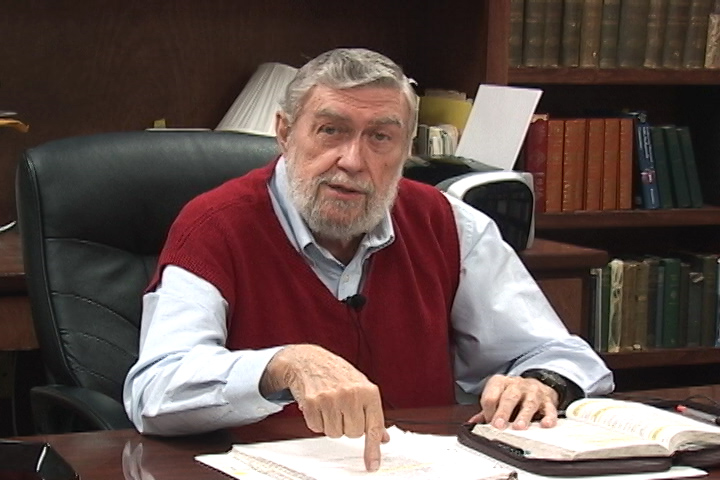Jay Adams, Pioneer of Nouthetic Counselling, Dies at 91


Jay Adams died on November 14, 2020. He was 91 years old. If his name is familiar, it’s probably because of his association with counselling. Adams was the pioneer of nouthetic Christian counselling, a theory of counselling based on what the Bible teaches about sin, human nature, and the dynamics of meaningful change. However, Jay Adams deserves to be remembered for more than just his contributions to Christian counselling. Let’s briefly survey his life and work.
Training and Ministry
Adams studied theology at Reformed Episcopal Seminary in Philadelphia – he actually began studying there at the age of 15. He later received a Bachelor of Arts degree from Johns Hopkins University and Masters in Sacred Theology from Temple University. Completing his academic training, Adams was awarded a Ph.D. in speech from the University of Missouri.
From 1963-1983, he taught pastoral theology at Westminster Theological Seminary in Philadelphia. Prior to that, he pastored a number of Presbyterian churches, including an Orthodox Presbyterian congregation. Over the last decades of his life, the Associate Reformed Presbyterian Church held his ministerial credentials. He was the founder of the Christian Counseling and Educational Foundation (CCEF) as well as the National Association of Nouthetic Counselors and the Institute for Nouthetic Studies.
Basic Orientation
I began reading Jay Adams as a university student. One thing that immediately impressed me was his real commitment to Scripture and the Reformed faith. He always took the Bible seriously. Whatever topic he was writing on, from Christian living to counselling to preaching, sola Scriptura was his touchstone. You might not agree with his exegesis or conclusions (I certainly haven’t always), but you have to agree that this is at least the right approach.
Adams was following in the footsteps of Cornelius Van Til. Van Til argued that Reformed principles, drawn from Scripture, must be consistently applied in apologetics. Jay Adams took that approach and applied it to pastoral theology. The starting point and governing standard must always be the Word of God. Prior to Adams, this hadn’t been fully recognized in Christian counselling.
Critics
Not everyone was enthusiastic about Adams’ approach, especially as it applied to counselling. For example, in 1977, an article appeared in Clarion by Dutch theologian Cornelis Trimp. The article (originally a lecture delivered at the Canadian Reformed Theological Seminary) expressed some appreciation for Adams, but was overall quite critical. Trimp’s critique would be influential in the Canadian Reformed Churches for years to come.
In 1999, I had the opportunity to meet Jay Adams briefly at a conference in Buffalo where he was speaking. I specifically asked him about Trimp’s critique and what he thought of it. He said that he thought it was unfair that Trimp based his critique on just one early book, Competent to Counsel. After Competent to Counsel and before Trimp’s critique was published, Adams wrote several more books where he explained himself further and answered many of the criticisms Trimp offered.
Other critics raised questions about Adams’ concept of habituation. In Adams’ thinking, habitual actions are automatic, second nature, and unconscious. They can be good or bad, which is to say that they have a moral character. In 2003, George W. Schwab wrote an important article for the Journal of Biblical Counseling in which he persuasively argued that Adams was more influenced by O. Hobart Mowrer and William Glasser than by Scripture in formulating his views on habituation.
His Abiding Contribution
Keep in mind that Adams wrote well over 100 books. When you write that much, you can expect that there will be disagreements and critiques – and there were many of them. Some of the critiques had more to do with Adams’ tone or style, sometimes perceived as too strident or too forceful. Some of the critiques were unfair or prejudicial, while others were on point and advanced the discussion. Many of Adams’ successors at CCEF, men like the late David Powlison, used Adams’ basic biblical approach and helped move Christian counselling forward. They all owe a debt of gratitude to Adams for getting the discussion going.
My life and ministry have certainly been enriched by Jay Adams. Perhaps he has something to offer you too. Let me make some suggestions to finish off:Competent to Counsel was one of Adams’ earliest books, published in 1970. It is an important book, but it leaves many questions hanging. If you’re interested in understanding the basics of his nouthetic counselling methodology, a better place to start would be A Theology of Christian Counseling: More Than Redemption. A good follow-up would be How to Help People Change: The Four-Step Biblical Process. A couple of other books that are more directed to the regular “person in the pew”: What To Do On Thursday: A Layman’s Guide to the Practical Use of the Scriptures and The Biblical View of Self-Esteem, Self-Love, Self-Image. Preachers and aspiring preachers need to read his Preaching with Purpose and Truth Applied: Application in Preaching.


